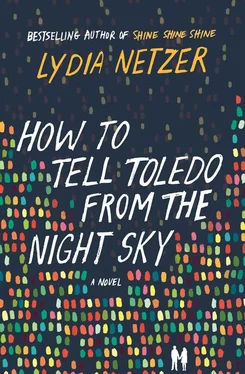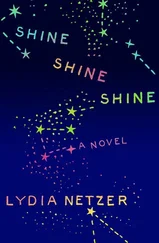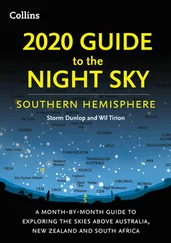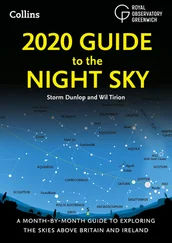Angelica’s son Harold Stickney, a prescient man who anticipated both the decline of canals and the importance of the scientific work being done at the library, wisely sold off the family’s interest in the shipping industry and poured the family’s fortune into establishing a college of science in the swampy country north of the river. He dreamed of founding a mecca of learning and culture to rival the East Coast universities. They had a two-hundred-year jump on him, but no more zeal for learning and truth. His motto was Scientia vincere tenebras, or “Conquering the darkness through science,” and at this humble academic outpost on the Maumee River, Stickney and Poole planted a flag for reason. Deep in the woods, Esther Birchard whistled up a wind.
Almost two hundred years later, the Toledo Institute of Astronomy had fully emerged as the epicenter of knowledge and research that its founders had imagined. Its lecture halls and laboratories were well funded by interested corporations, its trust well endowed by generous individuals, its campus a glorious example of frontier classicism, and in 1992 its reach even extended into space, as the first Toledo Space Telescope had been launched into orbit via space shuttle. The city of Toledo was proud of its astronomers, proud of its status, standing shoulder to shoulder with Brussels or Shanghai or Sydney in the quest to unlock the secrets of the universe and plumb the depths of the history of stars.
* * *
George Dermont, third-year postdoctoral research fellow and favorite instructor of most female undergraduates at the Toledo Institute of Astronomy, stopped in a stairwell of Stickney Center, looking for a vending machine that would take his dollar. George had a headache. A bad one. It felt as though the fibers of his brain were full of ice, and every thump of his heart was a hammer, shattering them over and over. It felt bad.
From the vending machine, he could get some headache pills. He could get some caffeine gels. At the Toledo Institute of Astronomy, the vending machines were stocked with sundries geared specifically to the young scientist. One could find lens cleaner, superglue, clamps, Altoids, and rubbing alcohol. One could certainly find migraine medication: vasoconstrictors, sumatriptan, even opium nasal spray. But George’s dollar was so wrinkled and old that it seemed he might try all the vending machines on campus and have no luck. The dollar kept coming back out.
George left the stairwell and turned down the corridor toward the lecture hall. He had five minutes to get to class and look over his notes from last semester, to try to remember what he was going to say to the new students. He pushed through the double doors and the class hushed their chatter. He pulled his notes out of his briefcase and pretended to look at them while he casually closed his eyes. It was the beginning of September. There was no need to panic.
He opened his eyes, turned his head to the left and right, and smiled down on the class. This is what they had come for. To learn the history of astronomy. And he would teach it to them, by the book this time: Ptolemy, Copernicus, Galileo, and the rest.
At times he tried to show his students extra stuff about the universe and give them a peek at what the Toledo Institute of Astronomy really had to offer. Then they would squint, shuffle their feet, cock their heads to the side. As if that lecture was not something they wanted to hear. As if it would slide off their brains at an angle, leaving a scuff mark. He knew that if he went off book too much, it would get harder and harder to get back to the textbook’s comforting pages. He would end up standing in a corner, facing the wall, ranting and raving at nothing. George Dermont was the bright young star of the cosmology department, the “it boy” for concerns of the whole universe and beyond. But if he ever really told them what was in his mind? If he ever fully expressed the depth of his beliefs? Would they keep on smiling, winking, waving? Or would they say to him, “Now what the fuck is that all about?” and denounce him as a fraud?
George began his lecture, and the students learned. They nodded their heads. Twenty minutes in, George eyed a girl in the third row in a tank top and khaki shorts, looking like a young Lara Croft from Tomb Raider, minus the pistols and with double the braids. There was one ropey braid on each side of her head, each draping down to decorate one bulbous breast. George almost thought he had seen her before. There was something about the braids that looked familiar. The way her eyes met his. The way she held his gaze. And just like that, George found he had departed from his lecture script. He had limbered up. He had remembered exactly what he had to say, and from an introduction to the first six constellations, George took a sharp turn.
“Remember the Assyrians?” he said. “They were the ones that came down like a wolf on the fold. They had gods. So did the Babylonians. The Greeks also had gods: commonly seen wearing white and having really smooth brows. Romans had gods. Hell, yes, everyone had them.”
The students nodded and chuckled. They remembered. This was something in the history of astronomy that they could comprehend: humans having gods. “Nowadays we assume there are pretty much three gods. Ours and the ones in other people’s religions.”
George smiled through the pounding in his skull. Lara Croft the freshman was tickling the tops of her breasts with one braid. The other hand was resting on her laptop, but she wasn’t typing. George looked at her, but found himself unmoved. Years ago, he might have let a girl like this come chasing after him with her braids knocking into her tits, might have thrown her down on a cascade of throw pillows, might have thought, “We’re in Toledo; what could go wrong?”
“Three gods. The world population is pretty much agreed on this fact, with the exception of Hindus, who remain belligerently polytheistic and Buddhists, who don’t even really have gods.”
George waited. The students still watched him, waiting for him to get back to chapter 1, “The Ancients,” and the book. Lara Croft nodded too slowly, like she was saying yes to a different question. Then, strangely, she began to glow. Her face blurred for a moment as George’s head contracted into stabbing pain, and then it reformed with redder lips and darker eyes. George blinked and squinted. Her hair grew down until her braids were coiled around her feet, and her limbs stretched and curved into pinup proportions. Now George saw she was wearing not a tank top and shorts but a bustier and a type of undergarment that George had once referred to as “spanking panties.”
“No one worships, for example, Zeus anymore,” he went on bravely, closing his eyes against the sight of her. “Or Ra. So where did all those other gods go?”
One of the young men in the class raised his hand.
“Yes,” said George. “Your name?”
“It’s David,” said the boy. “What page are we on?”
“Where did they go?” George pressed on. “Are they sitting somewhere in a retirement home for aging deities? Sipping tea and asking for their sons, who they know are coming to visit them today? Asking every day until the nurses must dress someone up as a son and make the fake son visit all the rooms? And the gods don’t even notice the difference? Because they are in their dotage?”
The braided vixen before him was rising into the air now, shaking her head as if to say, no, no, no!
George got louder, “Does the fact that they did not survive mean that they were not real? Greta, do you think the gods were never real?”
“Well—” began a girl in the front row. She shook her head. Seemed about to say her name was not Greta.
“It’s too horrible to imagine.” He interrupted her. “Gods don’t die—they don’t just disappear. They can’t do that.”
Читать дальше












